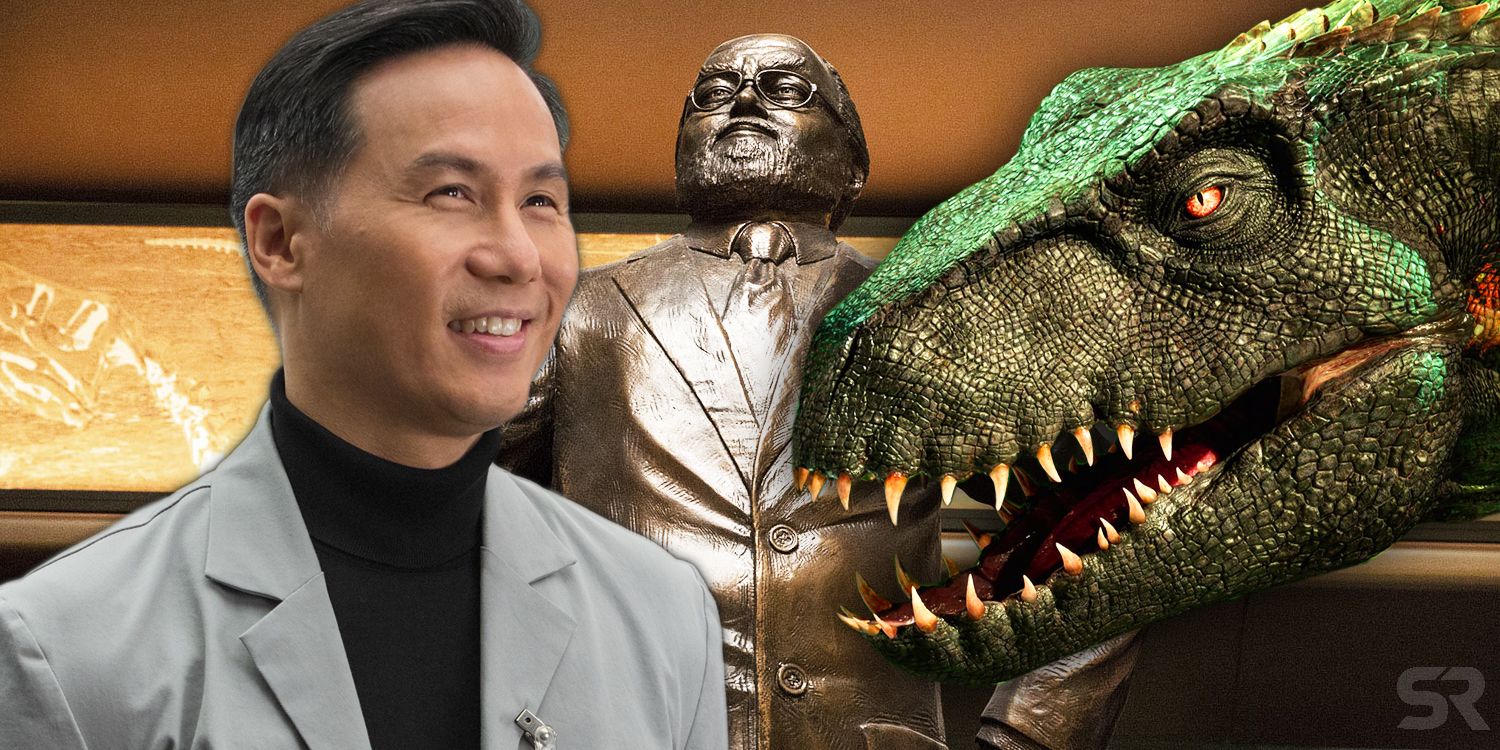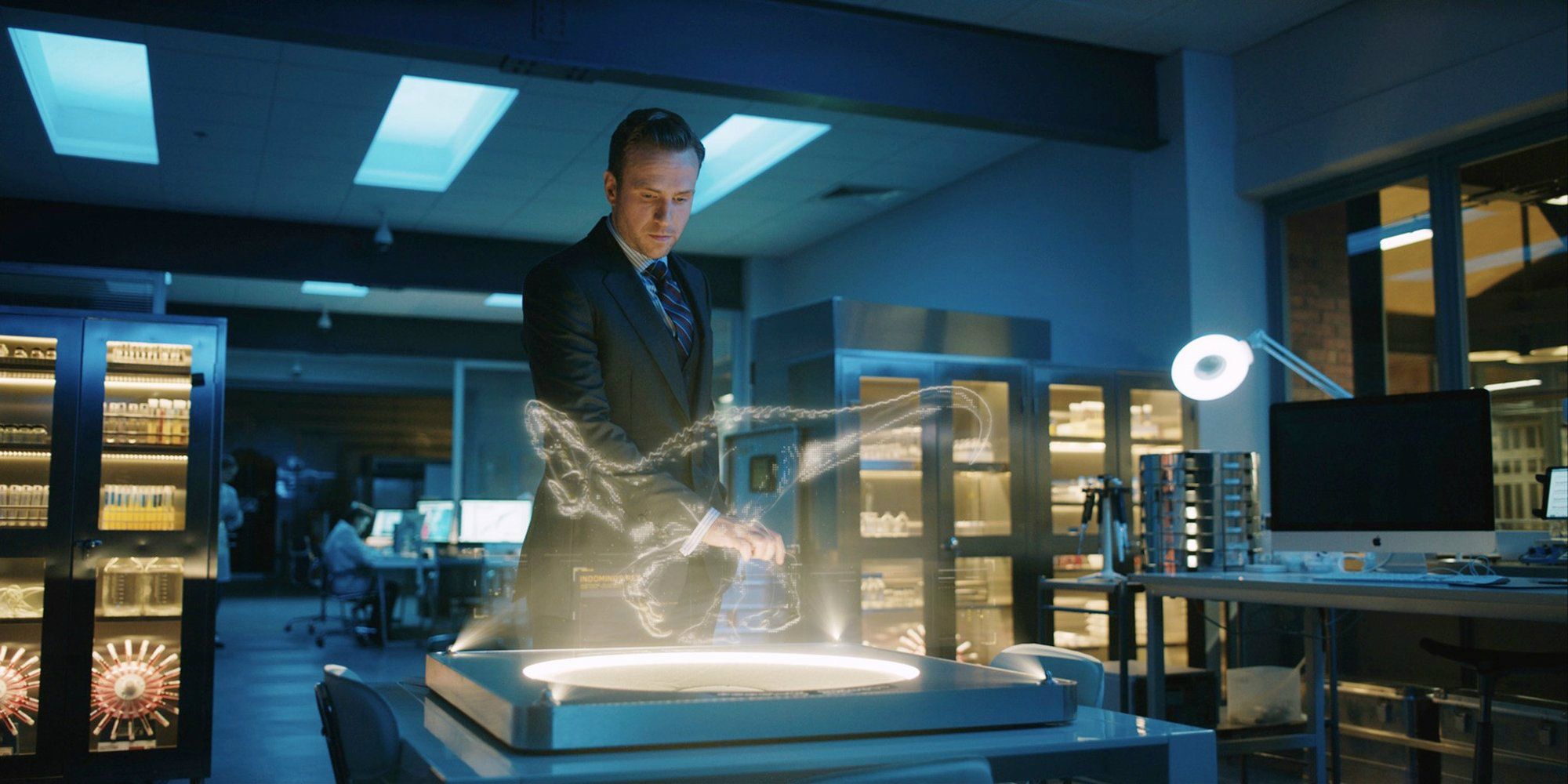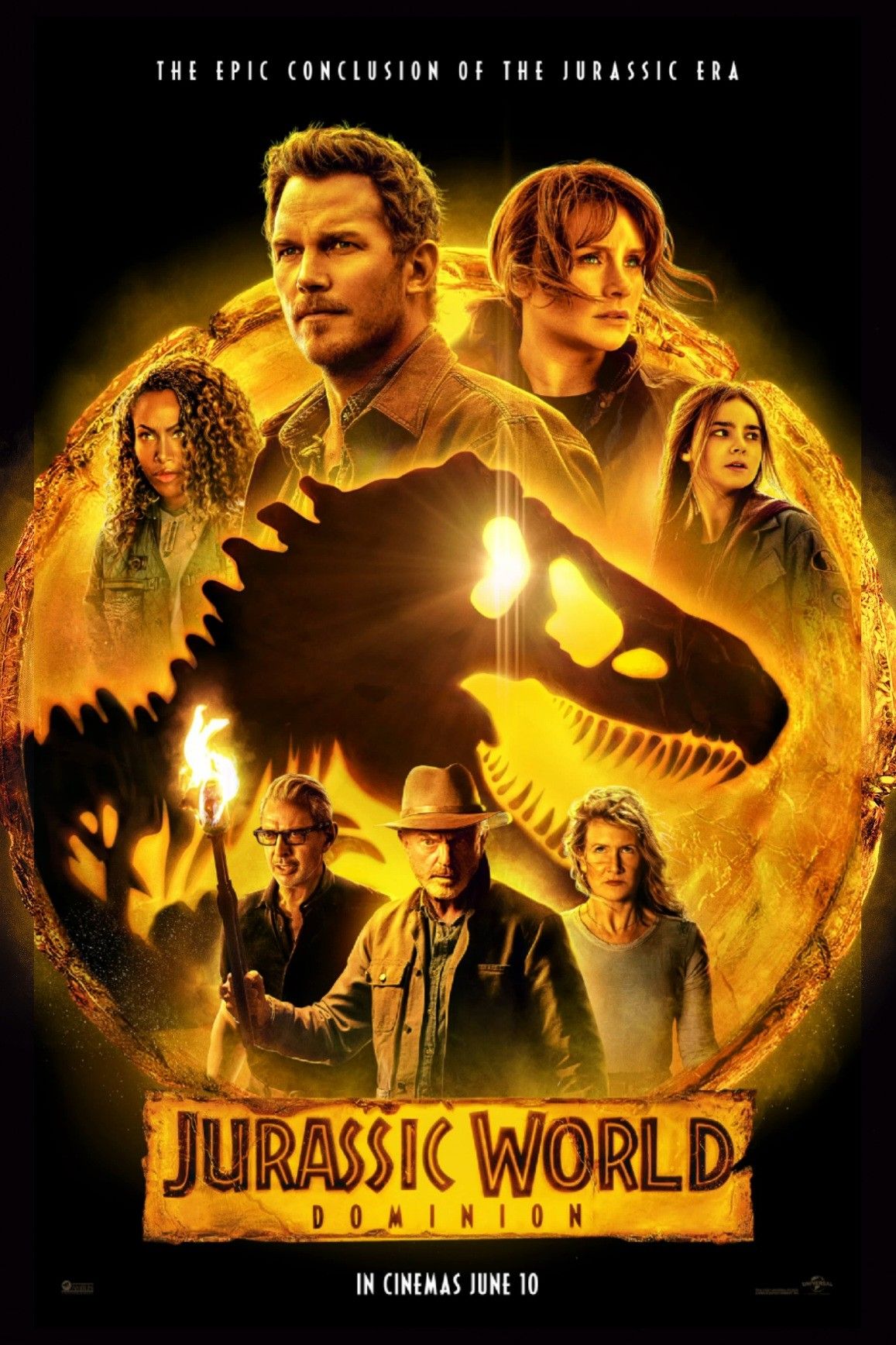Jurassic World may have resurrected the franchise with massive box office success and more dinosaurs than ever before, but it still doesn't have a clue who its actual villains are. This is a problem that goes all the way back to the original Jurassic Park sequels and stops the franchise ever being able to do something truly novel.
In the first movie, it's quite simple: the dinosaurs are the threat. John Hammond has made an ethical error in bringing the creatures back to life, Nedry and Gennaro are both waylaid by greed (and pay a toothy price), and Dodgson, an employee of InGen's rival, plots corporate espionage, but none of the humans are real antagonists. Mistakes are made to power character arcs alone, with the unpredictability of Mother Nature and hubris of thinking it can be controlled being the obstacles to overcome. It's a thinking monster movie.
Related: Jurassic Park and Westworld Were Rebooted The Wrong Way Round
The villains in the sequels, however, are as plentiful as they are vague. The Lost World: Jurassic Park, of course, has dinosaurs but also InGen being more blatantly nefarious. Jurassic Park III, to its credit, hones in on just the Spinosaurus and velociraptors, although doesn't really know what to do with either. Jurassic World has just the I-Rex on the dino side, but backs them up by a now-evil Henry Wu and park security Hoskins, as well as making sure to bring back the umbrella of corporate greed. Jurassic World: Fallen Kingdom makes things even more complicated, with dinosaurs and volcanos and mercenaries and InGen and Wu and a hybrid all thrown into the mix.
In one respect, Jurassic had to go past just having the monsters attack. Steven Spielberg's initial balancing act had the dinosaurs both adored and feared, which made for an effortless plot; pure wonderment at seeing the prehistoric beasts alive is all the motivation needed to put the heroes in danger. When it's later visits to the park, that's not going to be enough, especially when it comes to narrative propulsion. This puts the series in a Catch-22 situation: you need to have some form of human intelligence or hubris to establish the expected rampage, but by nature of being human they also must eventually be sidelined to make way for the real show.
Jurassic World introducing hybrid dinosaurs could have been a good way to combat this. By creating objectively "bad" dinosaurs with an explainable reason for aggression and high intelligence, you can get around the power balance. Yet both movies have still stretched to make sure it criticises those doing the genetic meddling to the point they become sneering villains in their own right. The logical step here was to have Henry Wu be Frankenstein, wronged by his own creation, yet for some reason he's a scheming figure.
It seems that Jurassic really wants to extend the corporate criticism Jurassic Park flirted with, which is tricky for two reasons. One is that there's only so much you can do with this idea that exists independent of the franchise. The second is that to paint the creation of dinosaurs as wholly wrong is to also vilify John Hammond, the series' kindly grandpa. Both The Lost World and Fallen Kingdom venerated and criticized Hammond as almost two different men - he's greedy capitalist and tender conservationist on the same topic - with Ian Malcolm's barbed "now you're John Hammond" line to Peter Ludlow as the T-Rex breaks out into San Diego one of the most perplexing in the franchise.
Related: Jurassic World 2 Completely Retcons The Original Jurassic Park
All of these villains ultimately exists to just explain why the same thing keeps on happening, a natural problem with any franchise built around a gimmicky movie. And that's the hurdle the sequels have never got past. It's easy to say that Jurassic World is about man vs. dinosaur, but that's too small thinking. The real villain is chaos, mother nature, untapped potential: grand ideas that don't have a clear cinematic translation.



